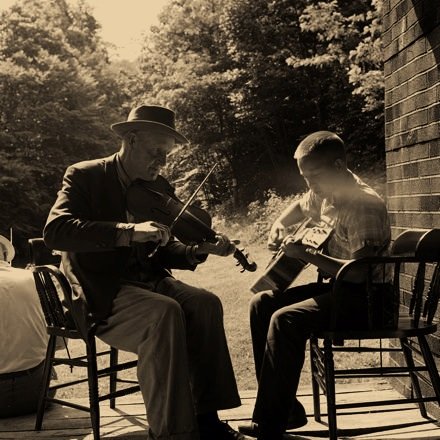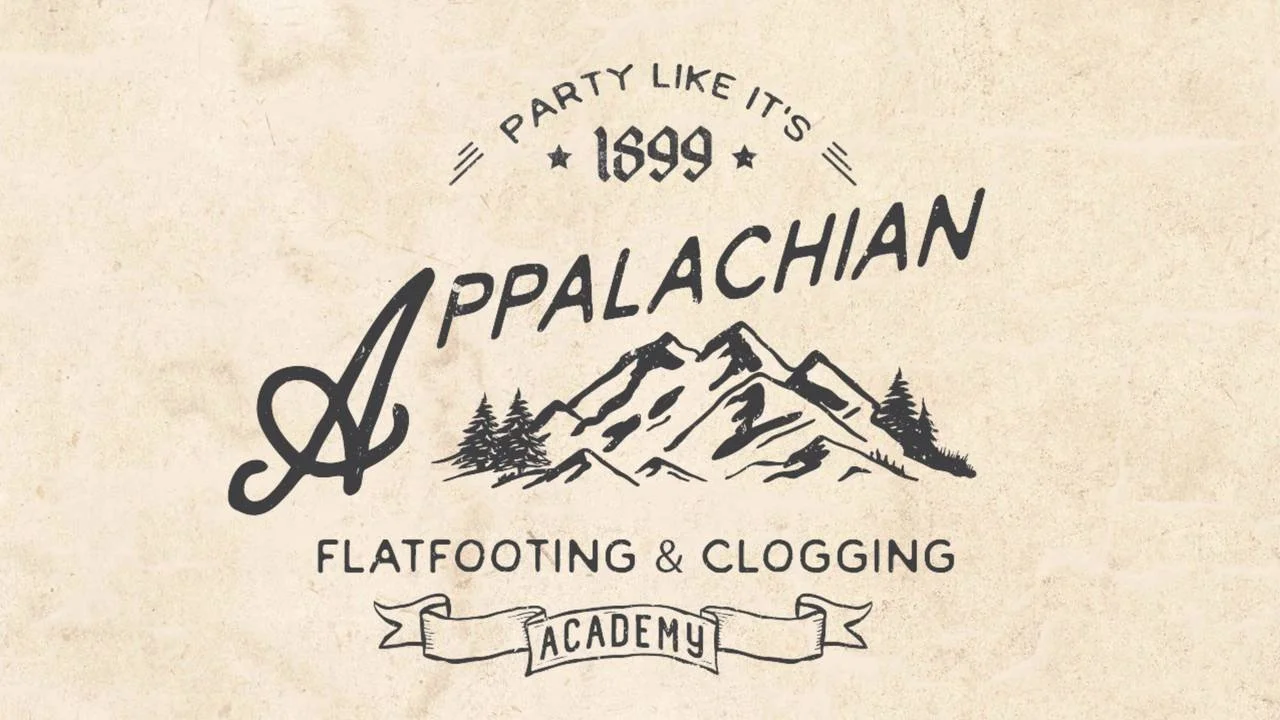
LEARNING TRAD
Through our Learning Trad folk and traditional arts education initiatives, Kentucky Old Time Music, Inc. has hosted lectures, classes and workshops; sponsored traditional arts apprenticeships and cultural exchanges in the U.S. and abroad; assisted in the development of regional folk and traditional arts curriculum for schools and cultivated community engagement through place-based folk and traditional arts programs.
Traditional Arts Teaching Partners
Appalachian Flatfooting Academy
The Appalachian Flatfooting & Clogging Academy offers a step-by-step process for beginner and intermediate dancers that teaches tons of steps plus how to combine them to become a smooth and musical dancer.
Whether you’re…
A beginner who’s always wanted to learn more about the style but hasn’t had access to the right teacher or community.
Someone who knows a bunch of steps but needs some extra support and a proven formula for putting it all together to improvise with fluency.
An experienced dancer in another genre who’s always wanted to learn this particular style of dance.
A performer or musician who regularly finds yourself in jam sessions and attending festivals where you want to make real “music with your feet” and even showcase your dancing onstage as part of your set.
If you’re someone who loves Appalachian music, dance, and culture, and you’re ready for an accessible, thorough, and FUN course that contains EVERYTHING you need (yes, everything!) to become a great dancer at your own schedule, pace, and location.
Trad Arts Educational Programs
Preservation through Performance: Did you know Aaron Copeland’s “Hoedown” actually came from a version of “Bonaparte’s Retreat” that was innovated by Salyersville fiddler Bill Stepp? Did you know that Bill Cornett, the former state representative for Knott and Magoffin Counties, a Democrat, won his seat in a landslide without even campaigning because people loved his banjo playing? Did you know Cornett is widely thought to have written “Man of Constant Sorrow”?
Kentucky’s rural diaspora has been a major tributary for the river of American music, but the rural communities themselves have all too often forgotten their auspicious artistic inheritance. In this concert series, we travel to specific sites of cultural innovation and perform tributes to the artists those communities once called neighbors. Want us to come to your neck of the woods? Be in touch.
Past Events:
2018 - Hamtramck, MI
Venue: Bank Suey
Readers: Ronni Lundy, Imani Mixon, Rebecca Gayle Howell, Anna Clark, Nandi Comer, & Courtney Balestier
Musicians: Norma Jean Haynes & Brett Ratliff
2020 - Lexington, KY
Venues: The Burl & ArtsPlace
Readers: Silas House, Ada Limon, Jason Howard, Rebecca Gayle Howell, Nandi Comer, Imani Mixon, & Ansil Elkins; Musicians: The Codgers, The Winetree, Giant Rooster Sideshow, & The Possum Queens
“Hillbilly Highway” Reading Series
The “Hillbilly Highway,” also known as the Appalachian migration, holds a significant place in American history. This monumental internal relocation of countless poor and working-class individuals, black and white, has unfortunately received limited attention from historians. However, delving into the depths of this long-overlooked story brings to light its profound impact on various aspects of American society, like the modern industrial labor movement and the postwar urban crisis, but it also becomes evident that the influence of the Appalachian migration extends to the rise and development of a large aspect of today's working-class.
The Hillbilly Highway was a parallel to the better-known Great Migration of African-Americans from the south. Many of these Appalachian migrants went to major industrial centers such as Detroit, Chicago, Cleveland, Cincinnati, Pittsburgh, Baltimore, Washington, D.C., Milwaukee, Toledo, and Muncie, Indiana. Many of the Appalachians lived in concentrated enclaves, an example being Uptown, Chicago, which was nicknamed "Hillbilly Heaven" in the 1960s.
While most often used in this metaphoric sense, the term is sometimes used to refer to specific stretches of roadway, such as U.S. Route 23, or Interstate 75. The migration was not a finite process, as it continues today and migrants commonly move back to their home states in retirement. The Hillbilly Highway Reading Series is a rural-urban exchange of words, music, and ideas where writers and musicians from Appalachia to Detroit, and other urban centers associated with the “Hillbilly Highway,” engage to explore this mass-migratory event and the complex narratives it involves.
Traditional Arts Community Partners
John Ryster builds custom Appalachian violins from his home shop on Hogtown Ridge in Rowan County, Kentucky. He learned how to build instruments from Tommy Case of Georgetown, Kentucky through the Kentucky Arts Council apprenticeship and has been busy building them for folks ever since. Musicians from all over the U.S. are proud owners of John's violins.




